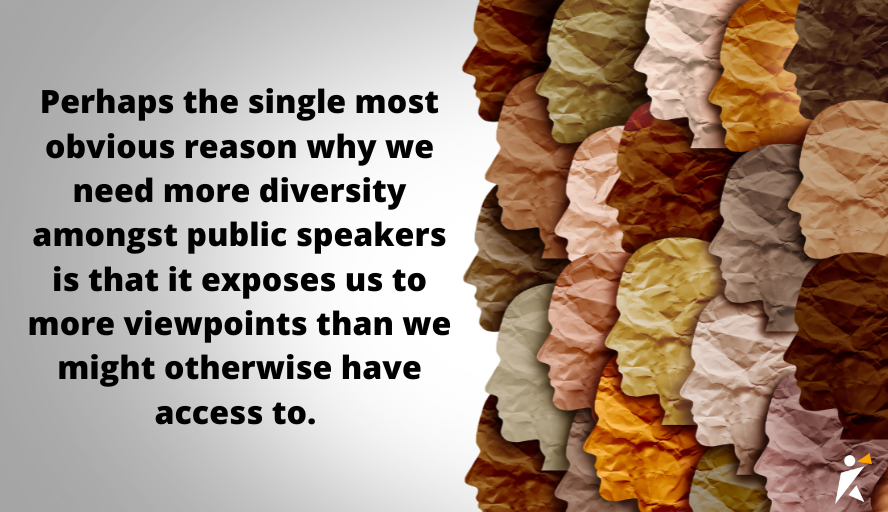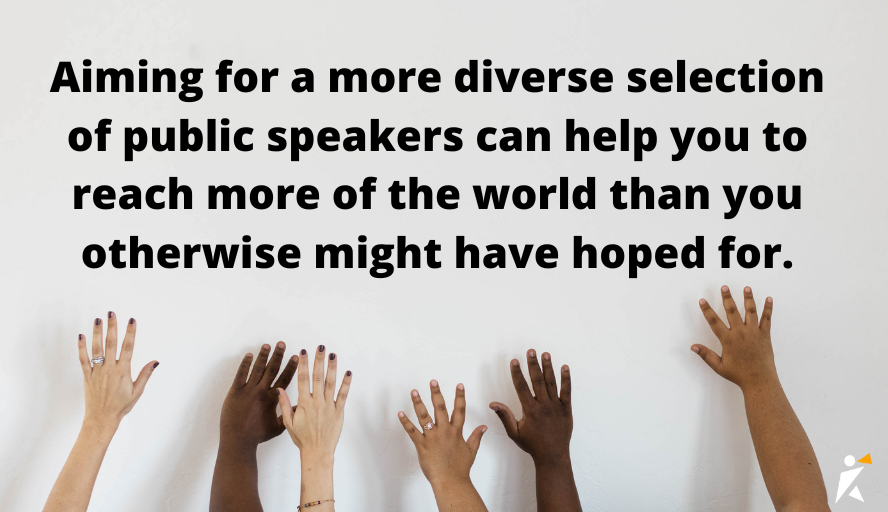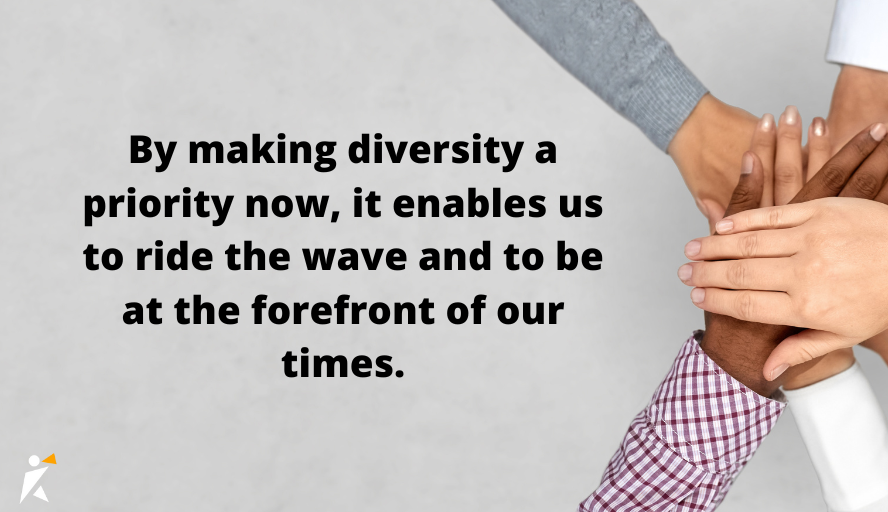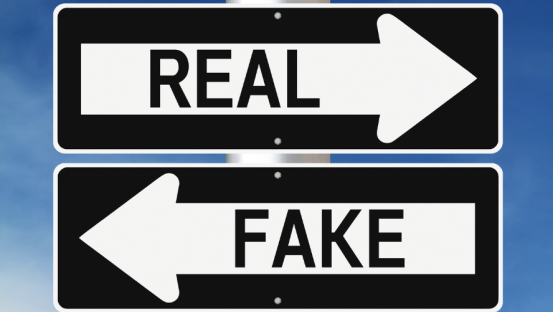Why We Need More Diversity Amongst Public Speakers

Diversity is a hot topic at the moment, and with good reason. Historically, western workplaces have been dominated by straight white males, but in recent years, society has started to recognize the value of having a more diverse workforce.
And the statistics speak for themselves. For example, Fast Company reports that organizations with above-average gender diversity and levels of employee engagement outperform companies with below-average diversity and engagement by 46% to 58%.
But statistics only take us so far, what exactly is it that leaves us needing more diversity amongst public speakers? We’re glad you asked. Let’s dive in and take a look.
1. It provides more viewpoints

Perhaps the single most obvious reason why we need more diversity amongst public speakers is that it exposes us to more viewpoints than we might otherwise have access to. We all bring a different perspective to the world, but we also tend to share a lot with the people that we’re similar to. If you never leave your hometown and only ever speak to other people who’ve never left it, you’ll have no idea what’s out there in the big, wide world. The same is true when it comes to learning about the world of business.
2. It’s fairer
Encouraging higher levels of diversity amongst public speakers is also fairer and, let’s face it, it’s the right thing to do. By making space for a more diverse collection of public speakers at an event, we provide a platform for people who deserve to share their story but have been historically overlooked. The easiest and fairest way to look at diversity is to look at the ratios, so if 20% of your industry is comprised of ethnic minorities, so should at least 20% of your speakers.
3. It boosts the pool of potential speakers
If you only ever hire middle-aged white guys to speak at your events, you’re imposing artificial limitations by reducing the pool of potential speakers. By shooting for more diversity, you dramatically increase the number of public speakers that are available to you and thus you give yourself a lot more choice. This in turn means that you can hire only the very best speakers regardless of their background, and it also means that you have more room for negotiation because you’re not just stuck paying whatever your limited pool of speakers demand of you.
4. Attendees see speakers who reflect themselves

As event organizers, it’s important for us to remember that our job is to host an event that people enjoy attending. As part of that, we have a duty of care to ensure that we provide a line-up of speakers that reflects the audience themselves. By searching for a more diverse lineup of public speakers, we maximize the chances that attendees will see someone on the stage that they can relate to – and thus have the best possible experience at your event.
5. It increases your global reach

Aiming for a more diverse selection of public speakers can help you to reach more of the world than you otherwise might have hoped for. For example, if one of your keynote speakers comes from China, that can lead to a flurry in ticket sales from the Chinese community and help your company and your event to pick up press coverage there. If you plan to go global and hope to reach more customers in emerging markets, choosing a more diverse selection of speakers just makes sense.
6. It boosts your reputation
Diversity is (understandably) important to people, and if you can demonstrate that you take it seriously, then it can provide a huge boost to the way that the public perceives you and your events. It’s a quick and easy way of showing that you care about the society and the world that you live in, and people will appreciate that you’re putting in the effort.
7. It makes attendees and organizers more profitable
Diversity isn’t just a buzzword that’s nice to have – the research shows that diverse companies make more money, in part because there’s a correlation between their knowledge of their customers and their ability to target them accordingly. It’s the companies that value diversity of experience which are able to attract and retain the most talent and thus which have the greatest competitive advantage. And if you’re able to value that diversity of experience as an event organizer, it’s going to make your events – and the companies that attend your events – far more profitable.
8. It prepares you for the future

We all know by now that the future is going to be increasingly diverse, which is demonstrated by the fact that our workplaces and workforces are already becoming more and more diverse. By making diversity a priority now, it enables us to ride the wave and to be at the forefront of our times so that when the inevitably more diverse future comes around, we’ll be ready for it. Why wouldn’t you want to be seen as being future-focused?
9. It helps to bring in more speakers in the future
Building on the last point, being more diverse will also help you to bring in more speakers when it comes to your future events. Once you’ve established a reputation as being an organizer of some of the more diverse events on the public speaking calendar, you’ll find that you don’t need to go out of your way to find speakers. Instead, they’ll come straight to you and you’ll have your pick of the cream of the crop.
Conclusion
Now that you know our thoughts on why we need more diversity amongst public speakers, we want to hear from you. Do you agree with us, or does your opinion differ? And do you think there are any factors that we missed?
As always, be sure to let us know in the comments so that we can keep the discussion going. You can also follow us on your favorite social networking sites for more. We’ll see you soon for another article!





